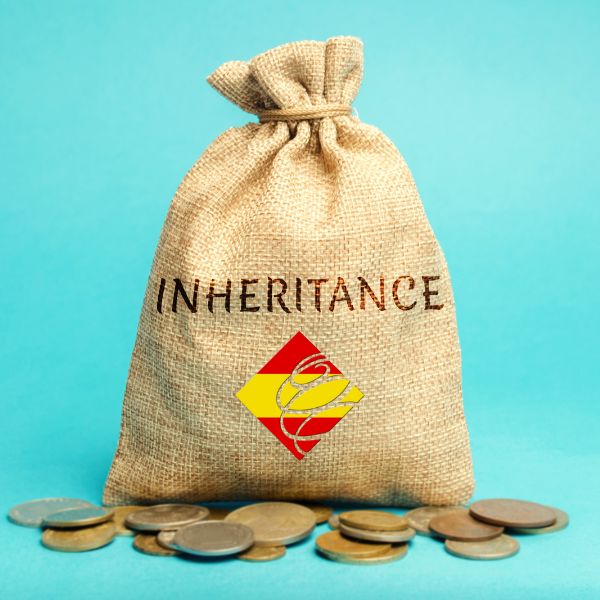If you are a parent in Valencia and are concerned about how to meet the rising cost of private education, you are not alone. Many families are looking for smarter, more tax-efficient ways to cover these expenses without depleting their hard-earned savings.
School fees in Valencia
By Matthew Green
This article is published on: 19th September 2025

At The Spectrum IFA Group, we help clients create investment strategies that can provide reliable income streams for school fees — while protecting wealth for the future.
The García Family Example
Mr and Mrs García live in Valencia and, like many families, are planning for the cost of private education for their children. With nursery fees averaging around €800 per month and secondary school fees closer to €960 per month, they wanted to ensure that they could cover these costs in a sustainable and tax-efficient way.
After speaking with their adviser at The Spectrum IFA Group, they looked at how best to structure their savings to provide the required income without eroding their long-term capital.
Using Investments to Generate Income
The Garcías had €250,000 available, which they invested into a tax-efficient bond. With an assumed long-term growth rate of around 5% per year, they were able to withdraw approximately €12,500 annually (about €1,040 per month).
This income stream was enough to cover the monthly school fees, while keeping the original capital invested and growing over the years.

Tax Efficiency Matters
In Spain, life assurance bonds are particularly attractive because of their favourable tax treatment. Only the gain portion of each withdrawal is taxable, making the early years especially efficient.
This structure meant the Garcías could cover school fees with minimal tax drag and without dipping into their capital base.
Flexibility and Peace of Mind
By using investment growth to fund school fees, the family maintained:
- Flexibility — withdrawals can be adjusted if fees change over time.
- Capital protection — their €250,000 remained invested for future needs, such as university costs.
- Estate planning advantages — the investment can be passed on seamlessly and tax-efficiently to their chosen beneficiaries.
The Importance of Ongoing Advice
As with any financial plan, regular reviews with their Spectrum adviser ensure the investment stays on track, adapting to changes in fee levels, market conditions, or family circumstances.
Summary: By structuring their savings intelligently, families in Valencia can meet the challenge of private school fees while preserving wealth for the future.
If you would like to explore how your savings and investments can be structured to provide for school fees — or other future goals — in a tax-efficient way, speak to The Spectrum IFA Group. A personal consultation will give you peace of mind that your plan is sustainable and tailored to your family’s needs.
Valencia’s local secrets
By Matthew Green
This article is published on: 15th September 2025

So you’ve made the move to Valencia—or you’re planning to. Now comes the fun part: exploring everything this beautiful city and region have to offer. Sure, you’ve heard of paella and the beach, but Valencia has so many hidden gems and local traditions that make life here truly special.
Here are some must-do experiences for newcomers that will help you fall in love with your new home.

Dive into Valencia’s Festivals
Valencia knows how to celebrate, and no event is bigger than Las Fallas in March. For two weeks, the city turns into an open-air art gallery filled with giant sculptures, fireworks every day (mascletàs), and all-night street parties. It’s loud, colorful, and unforgettable.
If you’re feeling adventurous, take a day trip to La Tomatina in Buñol—a world-famous tomato-throwing festival held in August. Wear old clothes!
Explore Albufera Natural Park
Just 20 minutes from the city, Albufera is a serene lake surrounded by rice fields—the birthplace of paella. Take a boat ride at sunset, watch the birds, and finish with a traditional paella in the village of El Palmar. This is Valencia at its most authentic.

Discover Montanejos Hot Springs
Need a break from the city? Head inland to Montanejos, a stunning mountain village known for its thermal springs and turquoise river pools.
Perfect for hiking, swimming, and soaking up nature.
Enjoy Valencia’s Beaches Like a Local
Everyone knows about Malvarrosa Beach, but if you want something quieter, try Playa de la Patacona or head to El Saler, south of the city, for natural sand dunes and crystal-clear water.

Taste Authentic Paella Where It Was Born
Skip the tourist traps on the beach and head to local favorites in El Palmar or the Ruzafa neighborhood.
Remember: paella is a lunch dish, not dinner. And yes, the real one has rabbit and chicken—not seafood.
Embrace Valencia’s Café Culture
Valencians love their coffee breaks. Find a sunny terrace, order a café con leche, and watch the world go by. Try horchata too—a sweet, milky drink made from tiger nuts, served ice cold with fartons (pastry).

Cycle the Turia Gardens
The old riverbed of the Turia is now a 9 km green park running through the city.
Rent a bike, take a picnic, or just stroll past gardens, playgrounds, and the futuristic City of Arts and Sciences.
Shop Like a Local at Mercado Central
This grand market is one of the largest in Europe and a feast for the senses—fresh produce, seafood, and local delicacies. Go early in the morning for the best experience.(pastry).
Join a Language Exchange
Want to improve your Spanish and make friends? Valencia has dozens of language exchange meetups where locals and expats come together for conversation. Great for breaking out of the expat bubble.

Take Day Trips Beyond Valencia
From the orange groves of Xàtiva to the beaches of Cullera and the historic charm of Peñíscola, there’s so much to see just an hour away.
Plan Ahead for a Smooth Transition
Valencia is full of amazing experiences—but while you’re discovering its culture, don’t forget about your financial future here in Spain. Things like tax planning, pensions, and investments work differently, and the right structure can make a big difference.
As a financial planner with The Spectrum IFA Group here in Valencia, I help expats like you plan smart so you can enjoy life without financial stress.
If you’d like a free, no-obligation chat about setting up your finances for life in Spain, feel free to get in touch. It’s all about making sure you can enjoy everything Valencia has to offer—without financial stress.
Spain’s Budget 2025
By Tom Worthington
This article is published on: 12th September 2025

Setting the stage: Brussels wants homework in October
While the UK plays calendar Enie Meenie minie mo with Spring/Autumn Budgets (and the occasional “surprise!” emergency one), the EU prefers punctuality. Every October, member states hand in their budgets like model students. In 2024, everyone also had to submit a four-year plan to steer national debt toward (or below) 60% of GDP—the EU’s collective happy place.
Spain, after a domestically bumpy 2024 (Reuters politely called the 2024 draft “discontinued,” which is the fiscal equivalent of “we meant to do that”), pivoted to 2025—and got Brussels’ nod in late November for a longer seven-year clean-up plan under the rebooted EU fiscal rules. Translation: fewer vibes, more spreadsheets.
What actually changed (a.k.a. the “please don’t shoot the messenger” bit)
Goodbye, tax holidays
- Basic foods slid back to their usual 4% VAT, olive oil included (collective sigh across Iberia).
- Electricity returned to 21% VAT.
- Fuel duty nudged up.
Net result: monthly bills did the opposite of “Mediterranean chill.”
Nine new tax rises for 2025
Congress kicked off the 2025 tax year with nine approved increases, targeting roughly €4.5bn/year in extra revenue. Among the eyebrow-raisers:
1. “Bank Tax”: A progressive levy on net interest margin + commissions earned in Spain (roughly 1% to 7%).
2. Savings Income Tax: For incomes over €300,000, the top rate rises from 28% to 30%.
*Yes, this can touch insurance policy withdrawals and other taxable gains—mainly relevant for the well-heeled.
Business translation: banks are the piñata; high-net-worth savers bring an extra 2% candle to the tax cake.

Property:
The spicy bit everyone is arguing about…
Regional Property Transfer Tax still varies (hello, Valencia at 10% for buyers, residents and non-residents alike).
But the big headline: reports that Spain is considering a tax of up to 100% on properties bought by non-EU residents (yes, that includes the UK and US).
- PM Pedro Sánchez framed it as an “unprecedented” step amidst a housing emergency, warning against a society split into “rich landlords vs. poor tenants.”
- He cited 27,000 homes bought by non-EU residents in 2023 “not to live in, but to make money.”
- The Property Registry estimated foreigners (EU + non-EU) were ~15% of sales in 2023 (~87k of 583k total).
Important fine print: This is about plans and proposals being discussed, not a done deal. If you’re a non-EU buyer, keep your lawyer on speed-dial and your pulse steady.
Wealth & Solidarity: the sequel nobody asked for (but everyone pays attention to)
Spain has long had Wealth Tax for residents with net wealth ≥ €700,000, but regions can—and did—play with allowances. Madrid and Andalucía famously went full 100% relief.
Cue the central government’s 2022 plot twist: a “temporary” Solidarity Tax layered on top, using Wealth Tax rules as the base. Exemptions broadly still apply (primary home up to €300,000, business assets when it’s your main activity, and qualifying shareholdings >5%—or >20% family-owned). After exemptions, Solidarity hits at:
- €3m – €5,347,998: 1.7%
- €5,347,998 – €10,695,996: 2.1%
- Above €10,695,996.06: 3.5%
Also remember: non-residents can face Wealth Tax on Spanish-sited assets. Double Tax Treaties may soften the edges—but bring a professional to the knife fight.

The surprisingly cheerful chapter:
Inheritance tax (mostly) retires to the beach
Spain’s regions have been trimming Succession Tax like a minimalist Marie Kondoing their wardrobes:
- Madrid: 99% relief for Groups I & II (close family) for years now, plus 25% relief since 2023 for siblings, uncles/aunts, nephews/nieces.
- Andalucía (since 2022): €1m allowance + 99% relief for spouses/ascendants/descendants (inheritances; gifts differ). Group III allowance €10,000, top rate 26%.
- Balearic Islands (from 18 Jul 2023): 100% reduction for Groups I & II (residents only). Group III? -50% for siblings/uncles/aunts/nephews/nieces; -25% for in-laws.
- Canary Islands (from 6 Sep 2023): 99.9% reduction for Groups I–III, and for gifts to I–II.
- Valencia (draft approved 5 Sep 2023): 99% reduction for Groups I & II, mirroring Murcia/Andalucía vibes.
Estate-planning translation: check your postcode—it matters more than your zodiac sign.
Who should care (and why)
- Banks: Expect margin/comms to feel… taxed. (On the bright side, you’re still not a fintech.)
- High-net-worth investors: That 30% top savings rate taps your shoulder at €300k+ incomes. Tax deferral may become your new best friend.
- Non-EU property buyers: Keep watching the “up to 100%” tax proposal. This is the policy equivalent of a weather warning: it may drift, split, or hit land.
- Heirs in certain regions: Inheritance tax often now says, “I’m off to Ibiza.” Confirm local rules, then celebrate responsibly.

Jargon-buster (with tapas)
- TARIC: The EU’s giant library of tariff codes—great for insomniacs and importers.
- Wealth vs. Solidarity: Same family, different personalities. Solidarity uses Wealth Tax’s base… and adds an extra bill for the very wealthy.
- Groups I–III: Family-proximity ladder for inheritance reliefs (spouses/children up top; in-laws somewhere near the sand).
Practical checklist (so you can look clever on Monday)
- If you bank or broker in Spain: Model the 1–7% bank tax impact on your P&L and pricing.
- If your savings income can top €300k: Re-evaluate wrappers, timing of withdrawals, and asset location.
- Thinking of buying in Spain as a non-EU resident: Pause, get advice, and track the 100% property tax proposal closely.
- Inheritance planning: Re-run scenarios by region—reliefs can be massive, but rules differ.
- Budgeting households: Expect higher baseline costs from VAT/fuel/electricity resets; shop around, switch tariffs, and stop treating olive oil like cologne.
Conclusion
Spain’s 2025 plan blends EU-approved fiscal discipline with domestic social aims—and a dash of headline-grabbing housing policy.
For investors and families alike, the theme is simple: location matters, timing matters, and reading the footnotes definitely matters.
Opening a Bank Account in Spain
By Matthew Green
This article is published on: 11th September 2025

One of the first things you’ll need when moving to Spain is a local bank account. Whether you’re paying rent, utilities, or just want easy access to cash, having a Spanish account makes life much simpler. Here’s what you need to know.
1. Types of Bank Accounts in Spain
- Resident Accounts: For those officially registered as residents.
- Non-Resident Accounts: For people living abroad or not yet registered. Often with higher fees.
Tip: Once you have your padrón and residency, switch to a resident account for better conditions.
2. Documents You’ll Need
- Passport or national ID
- NIE (Foreigner Identification Number)
- Proof of address (rental contract, utility bill)
- Proof of income (employment contract or pension statement)
Some banks also ask for a non-resident certificate, which can be obtained from the police station or arranged by the bank.
3. Which Bank Should You Choose?
Spain has a mix of traditional banks (Santander, BBVA, CaixaBank) and digital options (Wise, N26).
Consider:
- Language support (does the bank offer English service?)
- Fees (some charge monthly maintenance)
- Online banking and app usability
4. Common Pitfalls
- Forgetting to update your status from non-resident to resident account.
- Unexpected fees—always ask for a fee schedule in writing.
- Assuming all banks offer English-speaking staff (many don’t).

Plan Ahead for a Smooth Transition
Opening a bank account is a key step – but so is understanding how to structure your income, savings, and investments in Spain. Banking here is different, and so are tax rules.
As a financial planner with The Spectrum IFA Group here in Valencia, I help expats like you make smart decisions for a stress-free life in Spain.
If you’d like a free, no-obligation chat about setting up your finances for life in Spain, feel free to get in touch. It’s all about making sure you can enjoy everything Valencia has to offer—without financial stress.
How to Register for the Padrón and NIE in Valencia
By Matthew Green
This article is published on: 8th September 2025

If you’re moving to Valencia, two words will come up quickly: padrón and NIE.
Both are essential for everyday life, but the process can feel overwhelming. Here’s a simple guide.
1. What is the Padrón?
The padrón municipal is the local census—registering your address with the town hall (ayuntamiento). It’s needed for:
- Health care
- School enrollment
- Resident parking permits
- Tax purposes
2. How to Register for the Padrón in Valencia
You’ll need:
- Passport or national ID
- NIE (if you have it)
- Rental contract or property deed
- Completed application form
Book an appointment (cita previa) on the Valencia City Hall website or by phone. Registration is usually free.
3. What is the NIE?
The Número de Identificación de Extranjero is your foreigner ID number. You’ll need it for almost everything: buying property, opening a bank account, paying taxes.
4. How to Get an NIE
- Apply at the foreigners’ office (Oficina de Extranjeros) or at a Spanish consulate abroad.
- Bring passport, completed EX-15 form, proof of why you need the NIE (e.g., work contract), and pay the fee (around €10).
Appointments must be booked in advance—and they fill up fast.

Common Tips
- Make photocopies of everything.
- Arrive early for your appointment.
- Consider using a gestor to avoid headaches if your Spanish is limited.
Plan Ahead for a Smooth Transition
Getting your padrón and NIE sorted is an important first step—but financial planning should be next on your list. From tax planning to pensions and investments, having a strategy will make life in Spain easier and more secure.
As a financial planner with The Spectrum IFA Group here in Valencia, I help expats like you plan for a stress-free life in Spain.
If you’d like a free, no-obligation chat about setting up your finances for life in Spain, feel free to get in touch. It’s all about making sure you can enjoy everything Valencia has to offer—without financial stress.
Webinar – Moving to Malaga, Spain
By Jett Parker-Holland
This article is published on: 5th September 2025

Join the Webinar
Moving to Malaga
23rd September 5pm UK | 18.00 CET

Dreaming of a new life in the sun?
Whether you’re just starting to explore or actively planning your move, join The Spectrum IFA Group and the expert partners for a free, live webinar designed to guide you every step of the way.
- Property insights from BluCee Real Estate
- Visa & residency guidance from Help at Hand Spain
- Currency exchange tips from Lumon
- The financial and tax planning for your move – Jett Parker-Holland, Spectrum IFA Malaga office
- How to choose the right health insurance with Sam Campbell Insurance
Cultural Adjustments Expats Face in Valencia
By Matthew Green
This article is published on: 1st September 2025

Moving to Valencia is exciting—sunshine, paella, and a laid-back Mediterranean lifestyle. But let’s be honest: settling into a new culture isn’t always smooth sailing. Spanish life comes with its quirks, and Valencia has plenty of them.
Here are the 10 biggest cultural adjustments expats face—and tips on how to embrace them like a local.
1. Spanish Time Culture
In Spain, time runs differently. Lunch at 2 PM? Dinner at 9 PM? Yes, that’s normal. Shops may close for siesta in the afternoon, and nightlife doesn’t start until late.
How to handle it: Shift your schedule gradually. Enjoy the slower pace—it’s part of the charm.
2. The Famous Siesta
While not as strict as it once was, many businesses still close from 2 PM to 5 PM. It’s a shock for newcomers expecting 24/7 convenience.
Tip: Use this time like locals do—relax, have a long lunch, or run errands in the morning.
3. Bureaucracy and Paperwork
Spain’s paperwork reputation is well-earned. From your NIE to residency, it’s not quick—and sometimes requires multiple appointments.
Solution: Book appointments online early, make copies of everything, and consider hiring a gestor (administrative helper).
4. Language Barriers
While English is spoken in tourist areas, daily life often requires Spanish—and sometimes Valencian.
Tip: Learn basic phrases. Even if you’re not fluent, locals appreciate the effort.
5. Late Nights
Valencianos are night owls. A family dinner at 10 PM or kids in the park at midnight during summer is completely normal.
Adjustment: Go with the flow. You don’t have to match every habit, but embrace the social energy.

6. Meal Culture
Forget grabbing a quick sandwich at your desk. Lunch is a big deal—long, social, and often the main meal of the day.
Tip: Try the menu del día for an affordable taste of Spanish dining culture.
7. Making Spanish Friends vs Staying in Expat Circles
Expats often start by meeting other expats—it’s easy and comfortable. But making Spanish friends takes time.
How to succeed: Join local clubs, language exchanges, or community activities. Valencians are warm once you break the ice.
8. Public Holidays & Fiestas
Spain loves its fiestas, and Valencia takes it to the next level with Las Fallas in March—fireworks, parades, and street parties. Expect shops to close and the city to come alive.
Tip: Embrace it. These traditions are part of why you moved here.
9. Different Work Culture
Work-life balance matters here. Expect longer lunch breaks, fewer meetings, and a slower decision-making process compared to Northern Europe or the US.
Adjustment: Be patient. Things get done—just not always on your timeline.
10. Sunday Shutdown
On Sundays, Valencia rests. Most shops close, and life slows down.
Tip: Plan ahead for groceries and use the day for family, friends, or exploring nature.

Plan Ahead for a Smooth Transition
Valencia is vibrant, warm, and welcoming—but like any big move, it takes adjustment. Embrace the differences, stay flexible, and you’ll soon feel at home.
And while you’re settling into Spanish culture, don’t forget the financial side of your move. Understanding the local tax system, managing pensions, and structuring investments properly can make life in Spain much smoother.
As a financial planner with The Spectrum IFA Group here in Valencia, I help expats like you make smart financial decisions—so you can focus on enjoying your new life.
If you’d like a free, no-obligation chat about setting up your finances in Spain, feel free to get in touch. It’s all about making sure you can enjoy everything Valencia has to offer—without financial stress.
Case Study Spanish Tax Resident Couple
By Barry Davys
This article is published on: 19th August 2025

Husband 60, wife 60, married, with two children who are financially independent and living in the UK
Background
- Pensions £930k
- House €1.25 M
- Investments £60k
- Cash Spain €60k
- Cash UK £184k
- Wills – UK & Spain
Challenges
- Build client understanding of pension situation and propose planning solutions
- Combined pension values were about to exceed UK Lifetime Allowance, relevant even for Spanish residents
- Difficulty calculating total pension benefits as coming from four different schemes
- When can I retire?
- No clear investment strategy
- How to minimise tax on retirement income
Better returns on funds held outside the pensions
- Bank accounts earning only 0.15%
Forward planning including Inheritance Tax
- Would the wife have sufficient income to maintain property if current pensions provided only 50% pension on husband’s death?
- What would be the Spanish inheritance tax liability if one partner died?
- How would this tax be paid?
- How is inheritance tax applied in Spain and the UK?
- How can UK and Spanish inheritance tax liabilities be managed and minimised?
What we did
a) Completed a full financial review of present financial standing
b) Undertook a cash-flow forecast to establish if widow’s pension was sufficient, how to pay inheritance tax on first death and how long their money would last
c) Consolidated pensions to improve tax efficiency, improve widow’s pension and manage in line with their other assets
d) Built investment strategy to improve return on their investments and cash
e) Clarified how inheritance tax applies in Spain and UK and gave an estimate of tax due
f) Built an inheritance tax strategy, including provision for sufficient funds to pay tax in Spain on first death
g) Minimised Spanish tax paperwork and liaised with Spanish tax adviser
h) Produced a family inheritance tax strategy document so whole family knew the strategy without disclosing amounts held by the parents
i) Wrote to UK HMRC to obtain confirmation that the family home in Spain would qualify for the Main Residence Nil Rate Band
j) Identified UK inheritance tax saving on a UK life assurance policy
k) Carried out regular reviews over 12 years (so far) to update investment and inheritance tax strategies and to adapt to legislative changes
The Results
- Improved return on bank accounts to 3.5% pa giving an increased £4,200 pa
- Removed pensions from UK Lifetime Allowance restriection
- By providing documentary evidence from UK HMRC for Main Residence Nil Rate Band delivered an inheritance tax saving of up to £140,000
- Improved widow’s pension by £7,000 pa
- Kept clients fully compliant with changing tax rules
- Answered the financial question “Am I going to be OK?” with a “Yes”
If you are resident in Spain, or are planning to move here, and would like to receive information on tax-efficient investing, pension transfers, investment planning or general financial planning, you can contact me on: barry.davys@spectrum-ifa.com or direct on 0034 645 257 525 – The Spectrum IFA Group (Spain)
The hidden costs – Retirement in Spain
By Matthew Green
This article is published on: 5th August 2025

Richard and Anne’s Move to Spain:
A Retirement Dream with a Hidden Cost

When Richard and Anne relocated from the UK to Spain’s sunny Valencia region to enjoy their retirement, they brought €100,000 in savings. They weren’t looking for high returns — just a safe place to grow their nest egg and potentially draw a small income if needed.
Richard chose to keep the money in a Spanish bank account. It felt safe, accessible, and earned a seemingly decent 5% per year. But what he didn’t realise was how Spain’s tax system was quietly eroding his returns — and how his family could face significant complications if he passed away.
Scenario 1: Leaving the Money in the Bank
Each year, Richard earned 5% interest. However, Spain taxed those annual gains at 26%, meaning he was only compounding on what was left after tax.
(Note: While 5% is well above typical long-term interest rates, this figure is used to highlight the negative impact of tax on compounding.)
Effective annual growth: Just 3.7% (after tax)
Value after 20 years: €202,269
What it cost him: Thousands in lost growth potential
What looked like a safe, straightforward approach turned out to be far less efficient than it could have been.
Scenario 2: Using a Spanish Tax-Compliant Bond
A friend introduced Richard to a financial adviser, who explained the numerous benefits of Spanish tax-compliant bonds — fully legal investment vehicles often underused by expats. These structures allow investments to grow tax-free until funds are withdrawn.
Richard invested the same €100,000 into a compliant bond, again earning 5% annually. But unlike the bank account, no tax was deducted each year, allowing the full amount to compound uninterrupted.
After 20 years:
Bond value: €265,330
Tax due on gain (€165,330): €42,986
Net amount after tax: €222,344 — €20,075 more than the bank account
Compound Growth Comparison (No Withdrawals)
The graph shows how the tax-compliant bond (orange dashed line) outperforms the bank account (solid line) over time, thanks to tax deferral. Even after paying tax at the end, the bond delivers a much higher return.

What If Richard Needed an Income?
Suppose Richard withdrew €5,000 annually to help cover living expenses. Here’s what happened:
From the bank account:
Withdrawals were fully taxed each year, and interest was also taxed annually. The account balance declined steadily, and the effects of compounding were weakened.
From the tax-compliant bond:
Withdrawals triggered tax only on the gains within each €5,000. The rest, drawn from his original capital, was untaxed or lightly taxed. Meanwhile, the remaining funds continued to grow tax-free.
Growth Comparison with Withdrawals
Even with yearly withdrawals, the bond preserved capital efficiently and delivered stronger long-term growth compared to a taxed bank account.

What Happens When Richard Passes Away?
One of the most overlooked parts of financial planning in Spain is inheritance tax and transfer of wealth to beneficiaries.
Because we take a holistic approach, we’d ensure Richard’s bond was correctly structured so that:
- His UK-based family could inherit without dealing with Spanish probate
- The investment passed directly to his beneficiaries
- No inheritance tax was due in Spain
What if he’d kept the money in the bank?
His heirs would have faced a slow, costly probate process in Spain, potential succession taxes, and possibly long delays — all during an already emotional time.

Why This Matters for You
If you’re an expat living in the Valencia region, with savings in Spanish or foreign bank accounts, you may be unknowingly exposed to:
- High annual taxation
- Poor compounding performance
- Inheritance delays and unnecessary tax exposure
The solution?
By moving your savings into a Spanish tax-compliant bond, you could:
✓ Maximize long-term growth through tax deferral
✓ Withdraw income more efficiently
✓ Avoid Spanish probate
✓ Protect your family from unnecessary taxes
Let’s Talk
I help expats across the Valencia region make their money work smarter within Spanish tax rules — always with a view to your entire financial picture, including what happens after you’re gone.
Moving from the USA to Spain
By Matthew Green
This article is published on: 2nd August 2025

From Confusion to Clarity:
A US Family’s Journey to Financial Security in Spain.
A New Life, Unexpected Challenges
Meet the Johnsons—David, Sarah, and their two children. Five years ago, they moved from the United States to Valencia, seeking a slower pace of life and the Mediterranean lifestyle. They assumed managing their finances abroad would be straightforward. With healthy savings and US-based pensions, what could go wrong?
Quite a bit, as it turned out.
They quickly discovered that managing finances abroad wasn’t just about currency exchange or opening a local bank account. As US citizens, they still had to comply with complex IRS reporting rules—rules they didn’t fully understand. After several failed attempts to find the right financial adviser, they realised they needed expert help.

Chapter 1: Overwhelmed by Complexity
When they first arrived in Spain, David and Sarah were confident.
David had worked as an engineer, Sarah in finance.
They’d spent years building their nest egg. But early optimism gave way to confusion as the financial realities of expat life set in.
1. US Investments and Pensions
They held retirement accounts in the US—401(k)s, IRAs, and a share portfolio in a brokerage account. These accounts were in good shape, but they couldn’t find anyone in Spain who understood how to manage them in light of their new residency.
2. Currency Exchange Issues
Their income and savings were in dollars, but their daily expenses were in euros. Each transfer to their Spanish account brought unpredictable exchange rates, affecting their monthly budget.
3. IRS Reporting Headaches
They knew they still had to report their global income to the IRS, but the process was far from clear. Forms like the FBAR (Foreign Bank Account Report) and Form 8938 (for foreign financial assets) came with serious consequences for mistakes—but no one could give them reliable guidance.

Chapter 2: Finding the Right Adviser – Matt Green
After a year of frustration, the Johnsons were introduced to Matt Green, a financial adviser with The Spectrum IFA Group, who specialises in helping expats in Spain.
A Comprehensive Understanding of US-Based Assets
With access to SEC authorised investment experts, Matt arranged a review all of their US accounts—401(k)s, IRAs, and investments—and explained how they could be managed efficiently from Spain. He helped them:
- Optimise withdrawals for tax efficiency in both the US and Spain
- Minimise currency risk through strategic planning
- Understand how to maintain and grow their investments without violating cross-border regulations
Clarity on US Tax Reporting
One of the Johnsons’ biggest challenges was compliance with US tax laws. Matt walked them through:
- FATCA requirements, including Form 8938 for reporting foreign assets
- The FBAR filing, which is required for foreign bank accounts that exceed $10,000 at any point in the year
- The potential penalties—up to $10,000 per violation—and how to avoid them
Matt’s guidance replaced confusion with confidence. The Johnsons finally understood their obligations and had a plan to stay fully compliant.
Creating a Reliable Income Stream
The Johnsons wanted a stable monthly income. Matt advised them on converting their retirement assets into a predictable, tax-efficient income stream. He structured a drawdown strategy that:
- Provided monthly income in euros
- Minimised exposure to exchange rate fluctuations
- Kept taxation low under both US and Spanish systems
Estate Planning Made Simple
The Johnsons also wanted to protect their children’s inheritance. With their sons still living in the US, they worried about how cross-border laws might affect their estate. Matt provided guidance on:
- Spanish and US inheritance laws
- Strategies to ensure smooth wealth transfer
- Minimising tax burdens for their heirs in both countries

Chapter 3: Peace of Mind in Their New Life
Thanks to Matt’s help, the Johnsons no longer feel overwhelmed.
Instead, they have a clear, tailored financial plan… and a trusted adviser by their side.
1. Clarity and Confidence
They now understand exactly how their investments work in both countries. Their monthly income is reliable, their savings are structured efficiently, and currency worries are gone.
2. IRS Compliance Without the Stress
Tax return season used to bring anxiety. Now, with Matt’s support, they’re on top of all IRS requirements. FBAR, Form 8938, and FATCA are no longer mysteries—they’re just part of an organised financial routine.
3. A Future They Can Enjoy
With their finances in order, the Johnsons are enjoying the life they envisioned—traveling, spending time with family, and making the most of their time in Spain without the cloud of financial uncertainty.
Conclusion: Why Expert Financial Advice Matters for US Expats
The Johnsons’ story is one of many. Managing US-based assets, navigating foreign tax laws, and ensuring compliance with IRS rules can be overwhelming for American expats.
That’s where Matt Green and The Spectrum IFA Group come in. Their expertise and network of professional contacts bridge the gap between US and Spanish financial systems, giving expats the confidence to manage their wealth effectively, stay compliant, and plan for the future.
From investment strategy to tax reporting and estate planning, Matt’s holistic approach ensures that you can enjoy your life abroad—without worrying about what’s happening back home.

Take the First Step Toward Financial Clarity
Are you a US citizen living in Spain and unsure how to manage your finances across borders?
Contact Matt Green at The Spectrum IFA Group for a free consultation. Whether you’re struggling with IRS reporting, retirement planning, or protecting your family’s legacy, Matt can help you turn financial confusion into clarity—just like he did for the Johnsons.


